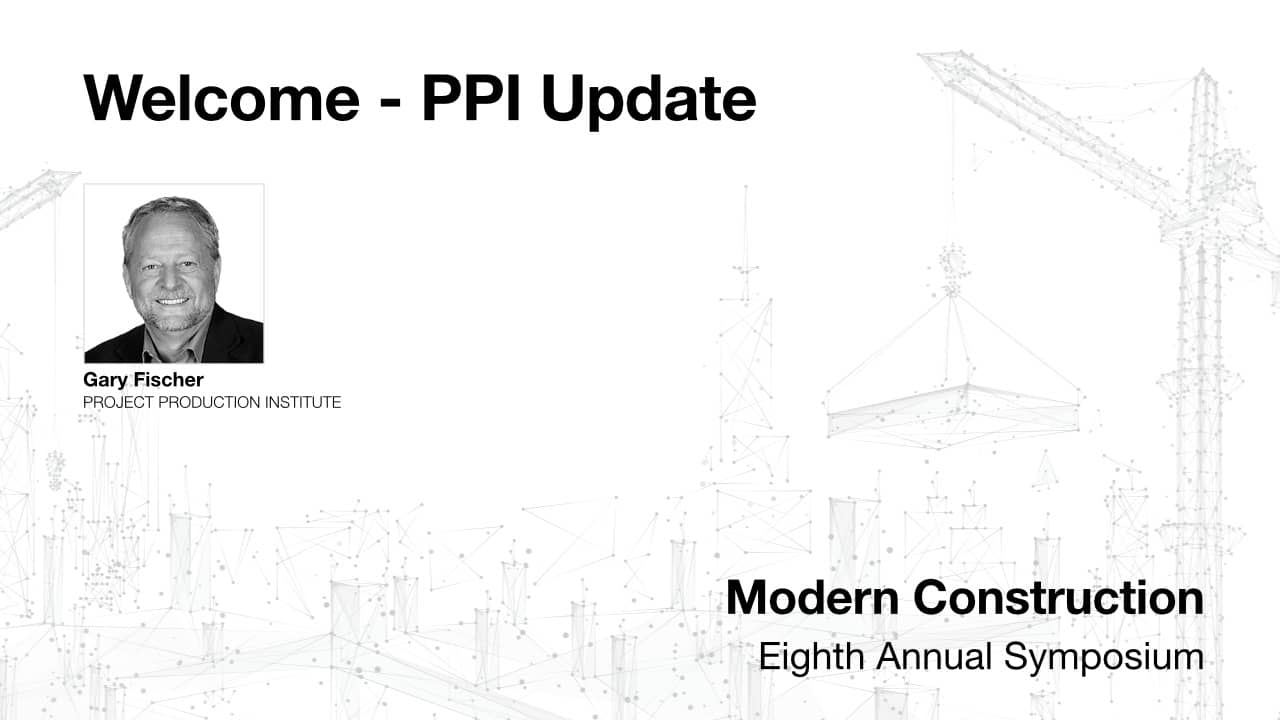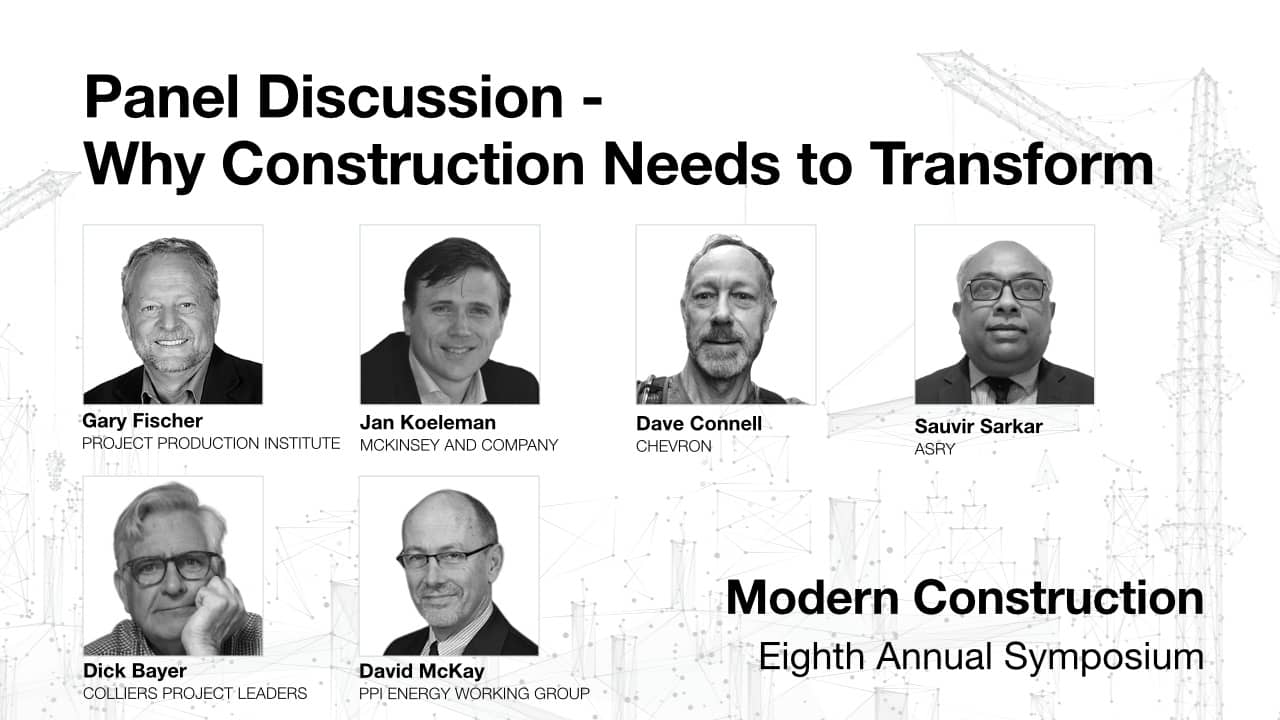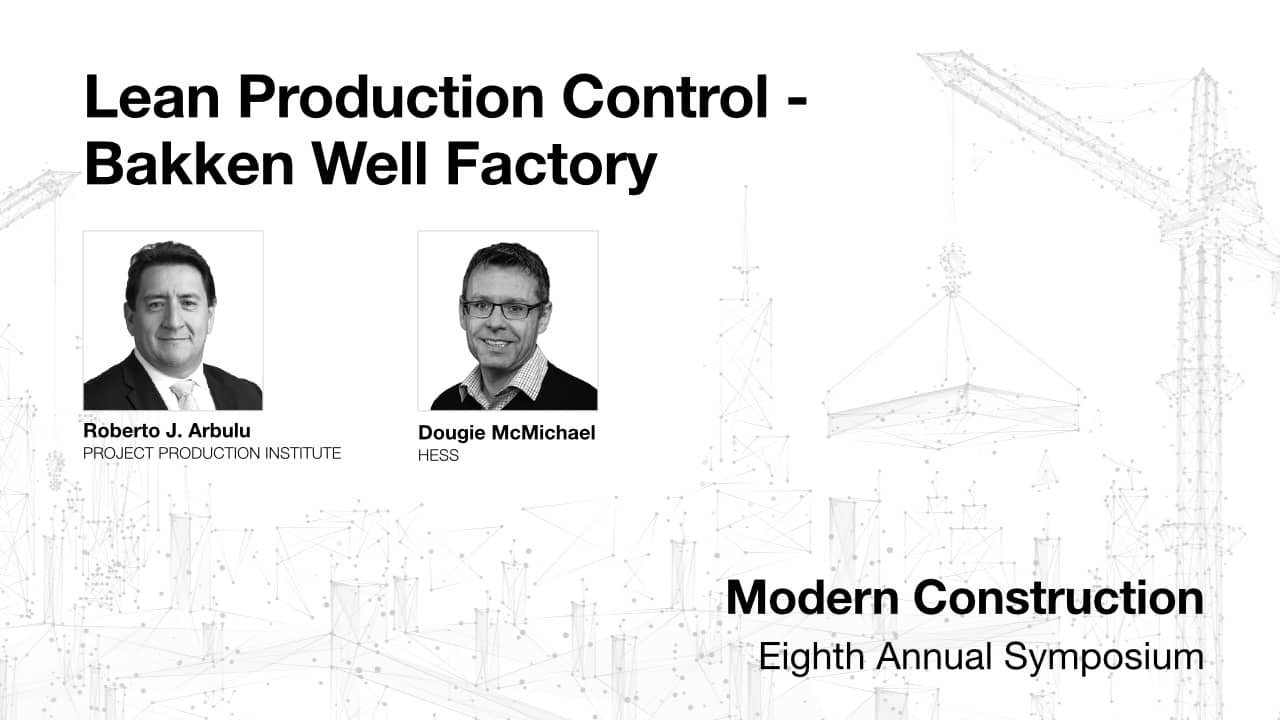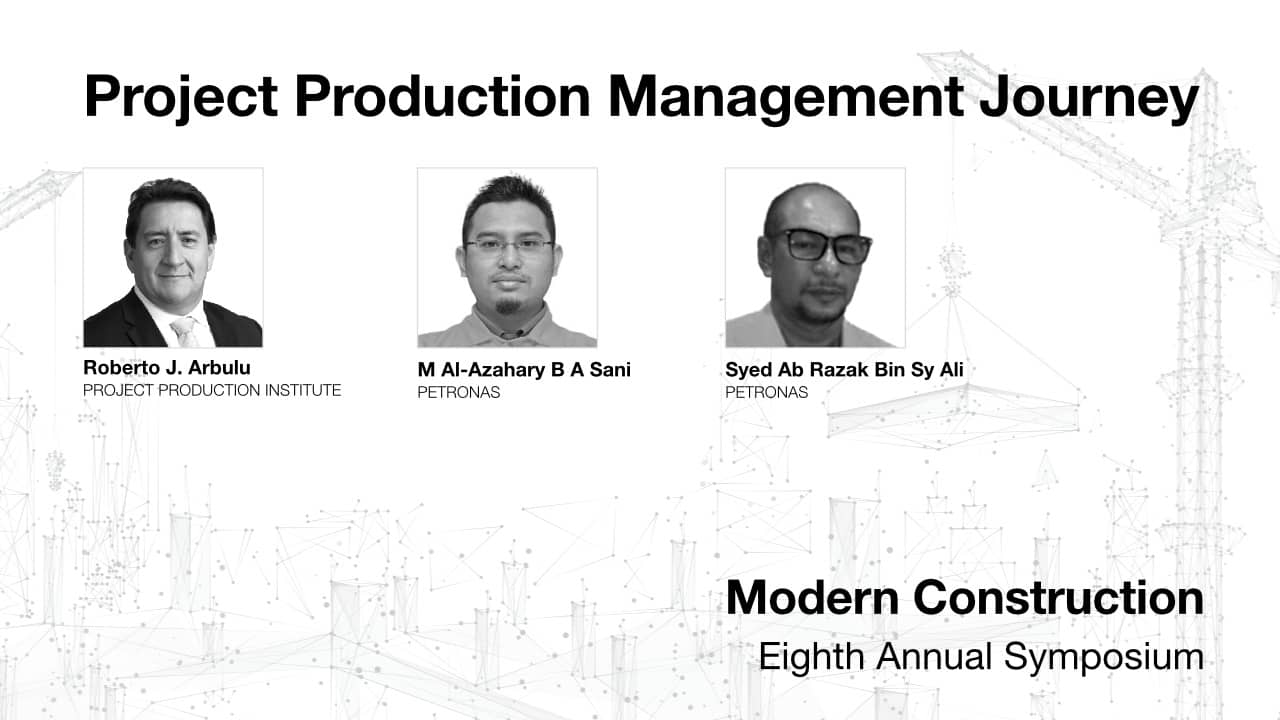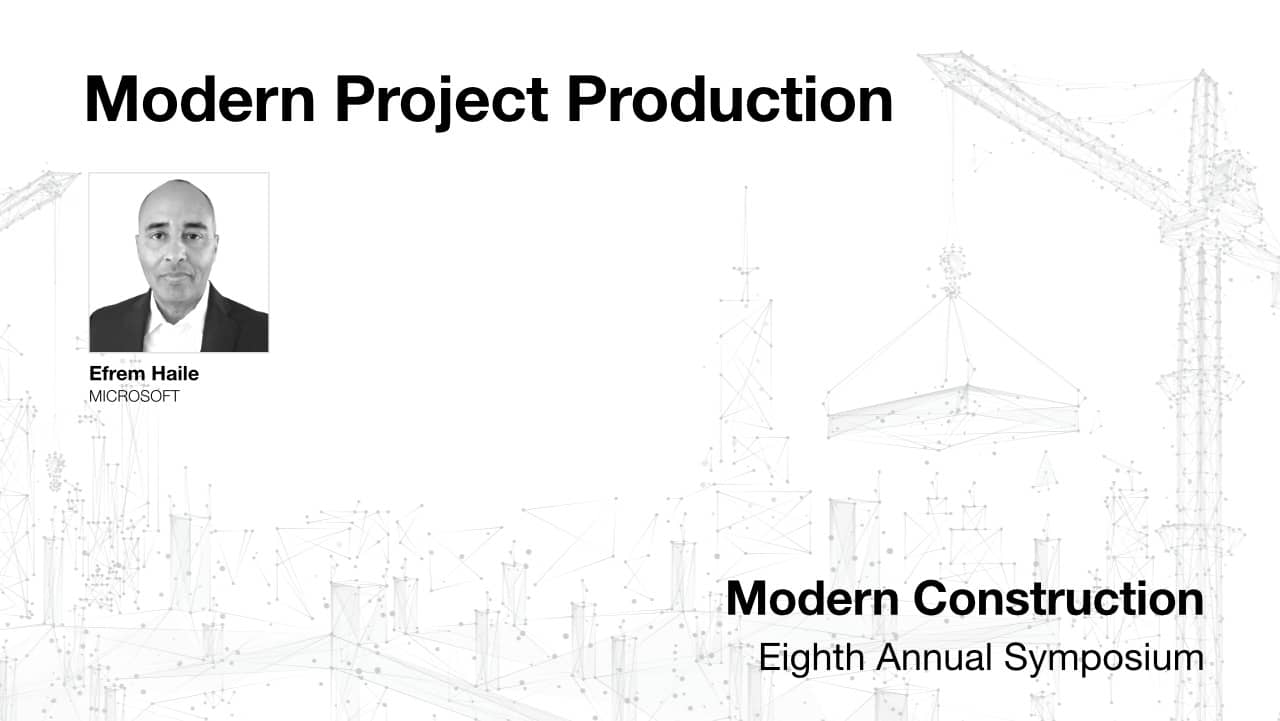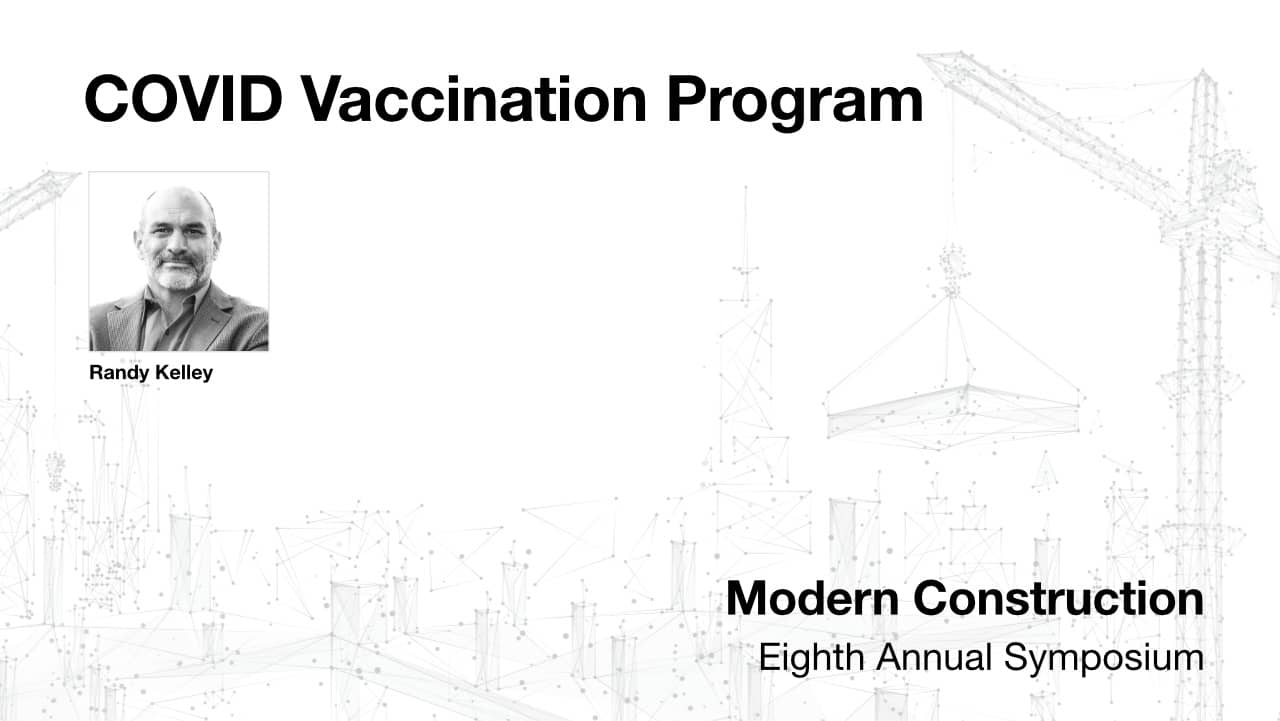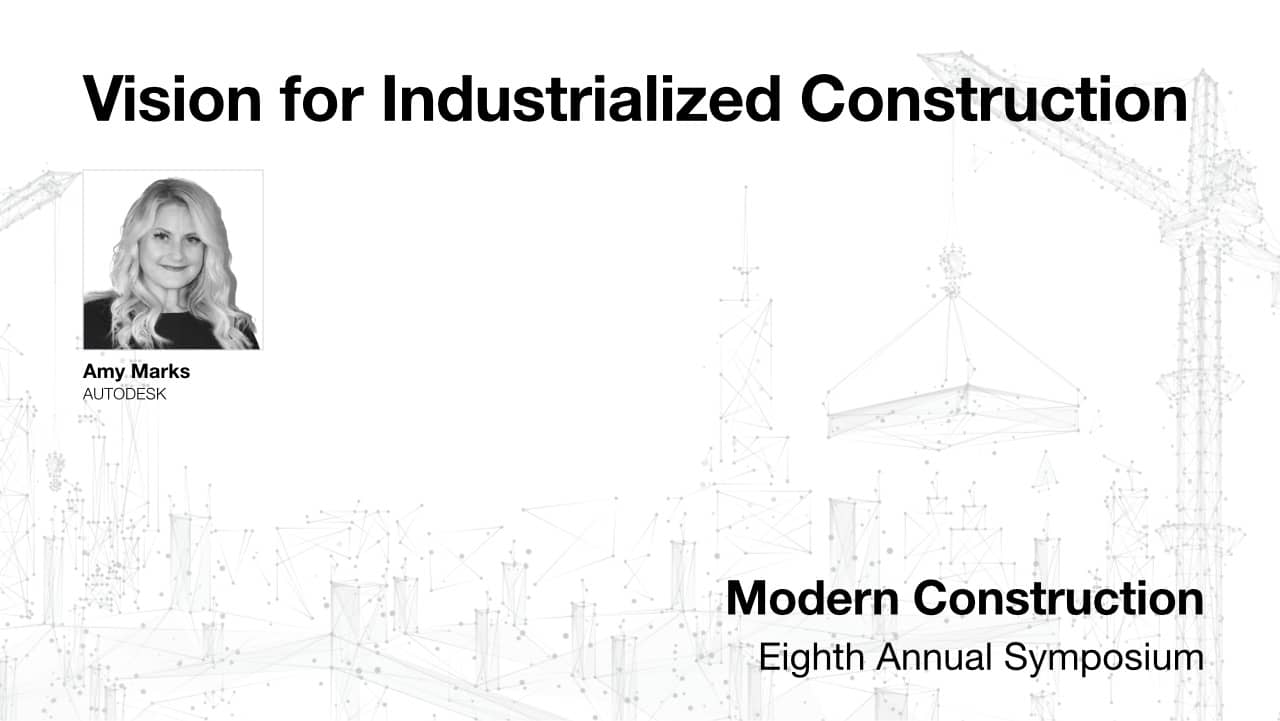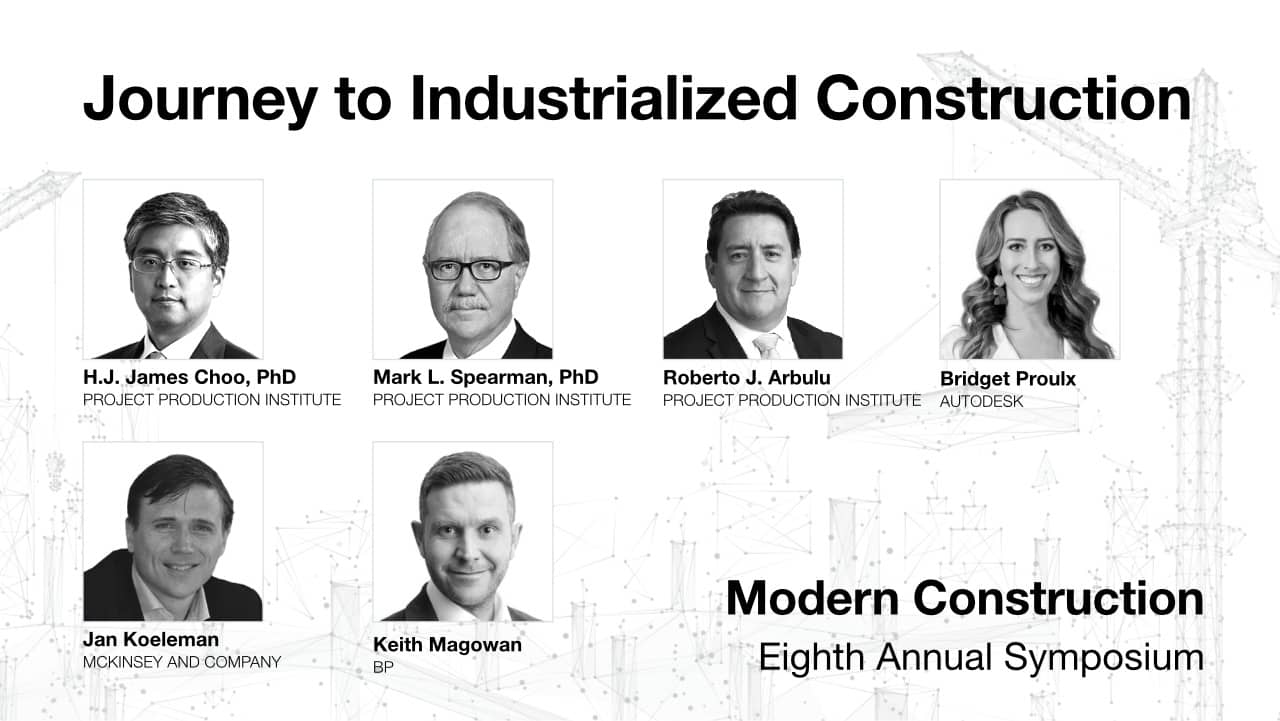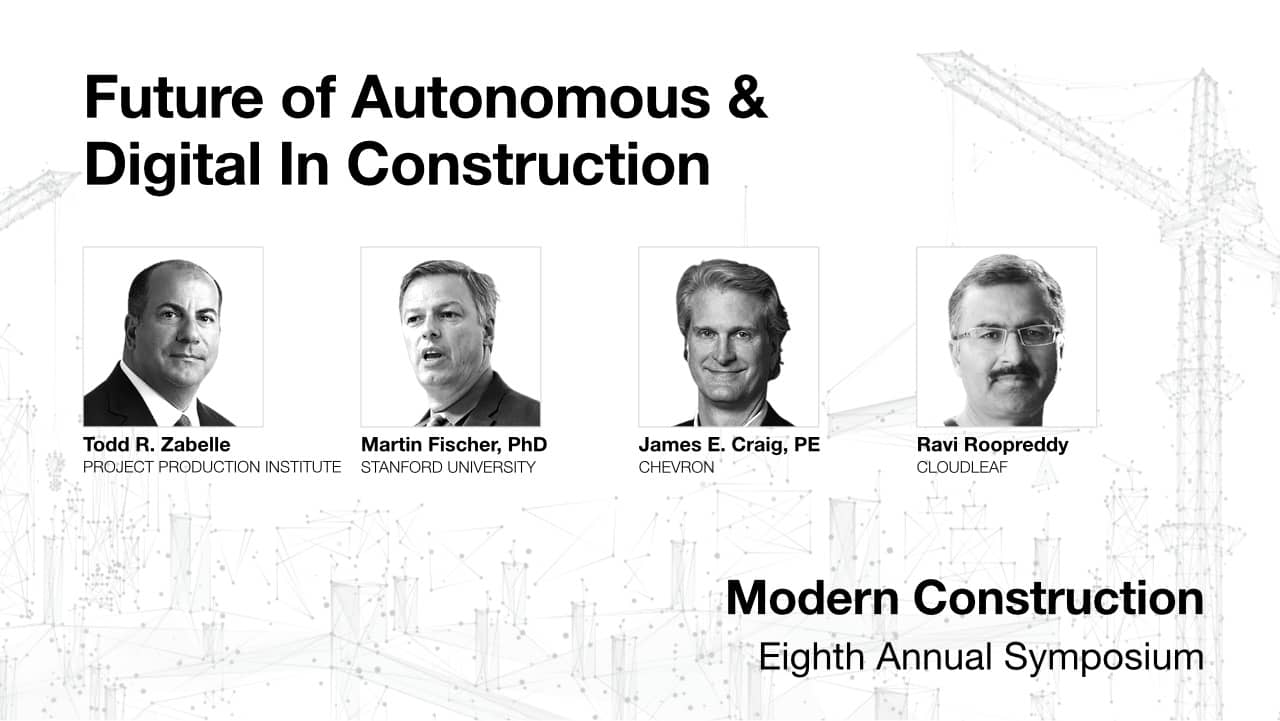To improve project outcomes and increase competitive advantage, owners and contractors are looking to modernize construction by focusing on three primary areas. This includes industrial product development and production, autonomous vehicles/robotics, and the use of digital technology.
Effectively modernizing construction results in significant project cost and schedule reductions, enhanced quality and reduced risk of EH&S incidents. It is not only important that these promising new ways of working be pursued as an integrated solution, but also that the underlying thinking and capabilities related to project delivery be reconsidered.
PPI’s Eighth Annual Symposium brought together industry experts, academics and thought leaders to discuss how to effectively implement and benefit from the modernization, digitalization and industrialization of construction.
Symposium Attendee Reactions
“Great session. Perfect balance of theory and real-world application.”
“Good mix of speakers with very different perspectives. Very insightful discussions
“Really enjoyed the diversity in thought.”
“Excellent speakers, broad SME participation, outstanding facilitation.”

Technical Achievement Award
PPI presented the 2021 Technical Achievement Award to H. James Choo, PhD during the 8th Annual Virtual Symposium. Dr. Choo is the Chief Technical Officer of Strategic Project Solutions, Inc. and has been leading research and development of SPS knowledge, processes, and systems to support implementation of SPS offerings since 2001. Learn more.
Presentations
Welcome – PPI Update
Gary Fischer, PE, emphasizes the significance of construction and infrastructure for the global economy. He is announcing PPI’s academic partnerships and initiatives with the aim of making PPM the leading delivery paradigm for capital projects, and is presenting the 2021 PPI Technical Achievement Award to James Choo of SPS.
Modernization of Construction – What Is It and How to Make It Happen
Todd Zabelle advocates modern production methods in construction to improve safety and efficiency. He outlines a framework for simplifying production processes using a 4-5-3 system. He identifies four verbs and five levers critical to optimizing production processes and emphasizes the importance of managing work in progress.
Why the Construction Industry Needs to Transform
The panelists are urging the construction industry to modernize its institutional approach, embrace operational science, and adopt a portfolio contracting approach. They are stressing the importance of a mindset shift when selecting contractors and measuring the right things to improve performance.
Lean Production Control – Bakken Well Factory
Dougie McMichael, VP of Hess’s onshore production, discusses the need for managing variability in the oil and gas industry and Hess’s approach to improving operational performance through processes, experimentation, adaptation, technology, and people development. He also highlights the importance of environmental performance and cost management.
Project Production Management Journey
Petronas presents their vision for project management through Project Production Management (PPM), addressing concerns about COVID-19 related delays and sharing their efforts to achieve sustainability. They aim for net-zero carbon and 50% improvement in cash generation and non-traditional revenue within five years.
Modern Project Production
Exploring Microsoft’s Project Production Management (PPM) Initiatives: Analyzing its Impact in Efforts Related to Data Centers, Digital Infrastructure, and Supply Chain
COVID Vaccination Program
Randy Kelley led a successful COVID-19 vaccination program in North Carolina by implementing operational science principles, resulting in improved efficiency and higher revenue. He emphasizes the importance of understanding operational science and suggests mid-way introduction of principles for better outcomes.
Vision for Industrialized Construction
Autodesk’s Amy Marks advocates for productization in the building industry by standardizing and digitizing the process to make efficient buildings. She stresses the need to integrate technology and processes and shift from being process-based to product-based for optimal results.
Journey to Industrialized Construction
The presentation discusses industrialized construction, its challenges, and approaches for adoption. It emphasizes automating processes, investing in robots, moving work offsite, and focusing on fabrication and assembly. The discussions suggest that understanding potential sources of negative variability and unintended consequences is crucial for making configuration decisions.
Future of Autonomous & Digital In Construction
Experts discuss the use of IoT sensors to create smart assets and optimize operations in various industries. They highlight the application of robotics in construction projects, the evolution of IoT, and the importance of data science in real-time data analysis. Chevron uses data to optimize its operations and is integrating its processes with the bill of processes concept used by Ford.


